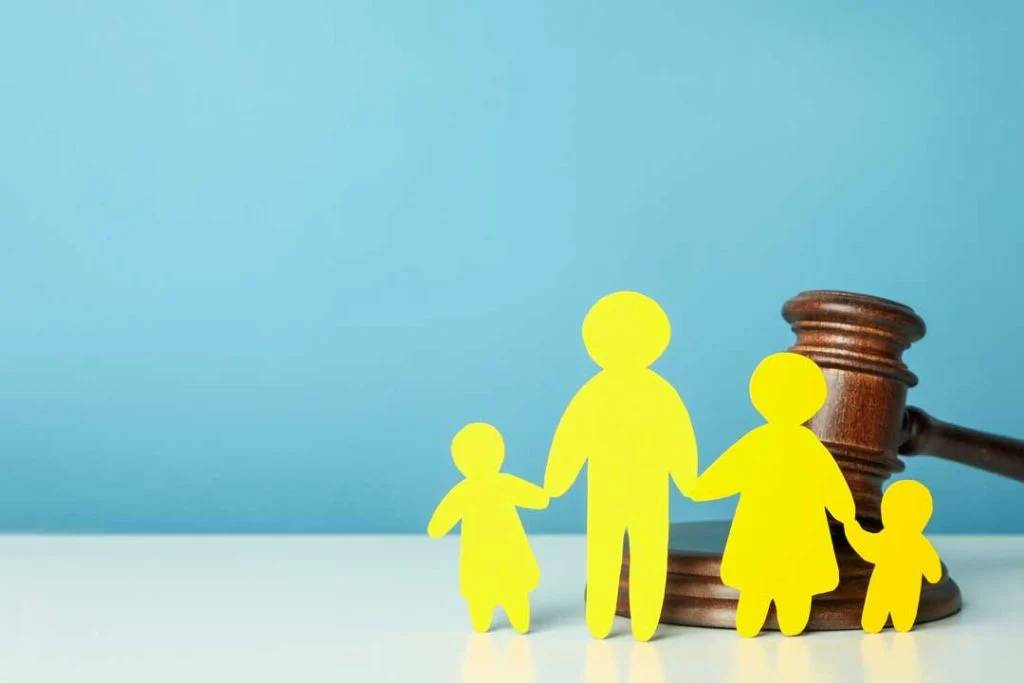Confused about guardianship vs custody? You’re not alone—and making the right choice could deeply impact a child’s future and your legal rights.

Are you unsure about how guardianship differs from custody?
You’re not alone. People often confuse these legal arrangements yet their important differences affect both children’s futures and legal rights.
According to recent data, 3.7 million children in the U.S. live without a parent as their main caregiver in their households which represents 1 in 20 children. Petitioners filed guardianship requests for only 1 in 25 children who lived under nonparental care across 33 states that provided data.
The good news?
A thorough knowledge of these legal frameworks allows you to make more informed decisions about your family’s future.
What you’ll discover:
- The Basic Definitions of Guardianship and Custody
- Key Differences Between Custody and Guardianship
- When to Choose Guardianship vs. Custody
- How Courts Determine Each Arrangement
- Financial and Legal Implications
What Are Guardianship and Custody? Let’s Break It Down
While both guardianship and custody establish who has responsibility for a child they exist for different reasons and award distinct rights.

Custody represents the legal authority to make decisions about a child and provide their care. When dealing with custody matters, consulting with experienced British Columbia family law professionals can help navigate the complex legal processes involved.
Guardianship occurs when a person who is not the child’s parent gains the legal responsibility to care for the child. A grandparent or any other relative as well as a family friend could be granted guardianship rights.
It is important to understand the main distinctions between guardianship and custody to make informed decisions. Here are the five most important distinctions:
1. Who Can Hold These Legal Rights
- The rights of custody primarily belong to biological parents and adoptive parents.
- Guardianship may be awarded to people who are not the child’s parents like relatives or friends.
Mothers receive custody in more than half of child custody cases according to both parents but fathers obtain custody agreements in only 18% of cases.
2. How They’re Established and Modified
- Custody arrangements typically emerge from divorce proceedings or paternity determinations and parental agreements.
- Establishing guardianship needs a distinct legal petition that is typically filed in probate court.
Guardianships require more legal effort to change than custody agreements which can be altered more readily.
3. Parental Rights Status
- Parents maintain their parental rights even when their children live under someone else’s physical custody.
- Parents maintain their rights but experience a suspension of these rights during the time guardianship is active.

Parents who have guardianship arrangements in place can file a petition to terminate the guardianship and restore their complete parental rights.
4. Duration and Permanence
- Custody remains effective until the child turns 18 or until a court changes the conditions.
- Guardianship arrangements may either be temporary or permanent depending on the specific circumstances involved.
The occurrence of shared physical custody agreements has increased to 11% of cases achieving equal time-sharing arrangements.
5. Financial Responsibilities and Support
- The parent who does not have custody typically pays child support to the parent who has custody.
- During Guardianship care providers have the option of using state assistance or the child’s assets to provide necessary support.
The yearly child support that custodial parents receive averages to $3,431. Under court orders custodial parents collect full payments less frequently than halfway.
When Should You Choose Guardianship vs. Custody?
The choice between guardianship and custody should be based on the circumstances you face. Let’s look at some common scenarios:

Situations Where Guardianship Makes More Sense:
- Guardianship becomes necessary when parents face temporary situations that prevent them from caring for their children such as military deployment or illness.
- If parents pass away without designating a guardian in their will
- Relatives become caretakers of a child because of parental abuse or neglect.
- A child needs a guardian when they receive property or a settlement that requires management.
The guardianship system enables another individual to look after a child when parents are unable to while parental rights remain intact.
Situations Where Custody Is Typically Better:
- During divorce or separation proceedings
- Legal rights need to be established when parents do not have a marital bond.
- Single-parent caregiving ability concerns may necessitate alternative arrangements.
- Parents who cannot reach an agreement on significant decisions about their child
Custody arrangements remain dynamic so they can adjust to changing family circumstances to meet evolving needs.
How Courts Determine Each Arrangement
Judicial authorities apply distinct criteria for making decisions regarding guardianship and custody arrangements.

Custody Determination Factors:
- The court considers both the age of the child and how each parent interacts with them.
- The ability of each parent to provide a consistent home environment demonstrates their capability for child custody.
- The child’s preference (if they’re old enough)
- The court considers any previous incidents of domestic violence or substance abuse.
- The courts examine whether parents are willing to support their child’s connection with the other parent.
Whenever possible courts prefer to keep children with their biological parents.
Guardianship Determination Factors:
- Documentation showing parental inability to provide adequate child care
- The proposed guardian’s relationship with the child
- The evaluation of the proposed guardian’s capability to deliver appropriate care
- The child’s preferences (if age-appropriate)
- The arrangement must benefit the child’s well-being.
Because guardianship transfers a child to a non-parental guardian the required standard of proof exceeds that of custody modifications.
Financial and Legal Implications
The establishment of guardianship and custody requires detailed financial planning and legal evaluation.

Financial Support Systems:
- The payment of child support by non-custodial parents depends on their earnings and the child’s requirements.
- State assistance programs may be available to guardians who also have the right to use the child’s assets.
Across 33 states where data is available nonparental caregivers seldom pursue legal guardianship resulting in only one in 25 children under their care having guardianship petitions filed.
Healthcare and Education Decision-Making:
- Custodial parents possess decision-making rights for their child’s healthcare and education but joint legal custody requires both parents to make those decisions together.
- Guardians generally possess complete authority to make educational and healthcare decisions for their wards but certain arrangements might restrict this authority.
Tax Implications:
- When parents have custody they typically have the ability to claim their child as a tax dependent.
- A guardian can claim a child as a dependent if they supply over half of the child’s financial support.
It is essential to understand these implications before moving forward with either arrangement because they will have enduring impacts on your financial circumstances and legal rights.
Getting Professional Help With Your Family Situation
Professional guidance becomes essential when handling the complexities of guardianship and custody situations.

When to Consult a Family Law Attorney:
- Before filing for custody or guardianship
- If you’re challenging an existing arrangement
- When circumstances change significantly
- If there are interstate considerations
An experienced lawyer will guide you through your choices while preparing necessary documents and representing you during court proceedings.
What Documentation You’ll Need:
- Birth certificates and financial statements
- Marriage and divorce records
- Evidence of your relationship with the child
- Documentation of special circumstances (abuse, neglect)
Having the appropriate documentation ready can help make the legal process more efficient while boosting your likelihood of success.
Custody or Guardianship? What Every Parent and Caregiver Should Know
Knowledge of the differences between guardianship and custody enables individuals to make knowledgeable choices concerning child care and their legal entitlements.
- Custody arrangements usually involve parental rights which are set during divorce or separation proceedings.
- Guardianship enables people who are not the child’s parents to take care of them when parents cannot fulfill their role
Selecting the best option requires consideration of your personal situation along with the child’s needs and applicable legal regulations in your location. Remember:
- Three point seven million children in the United States live with primary caregivers who are not their parents.
- Both parents concur that mothers should receive custody in more than half of custody dispute cases.

Jessi is the creative mind behind The Coffee Mom, a popular blog that combines parenting advice, travel tips, and a love for all things Disney. As a trusted Disney influencer and passionate storyteller, Jessi’s authentic insights and relatable content resonate with readers worldwide.
